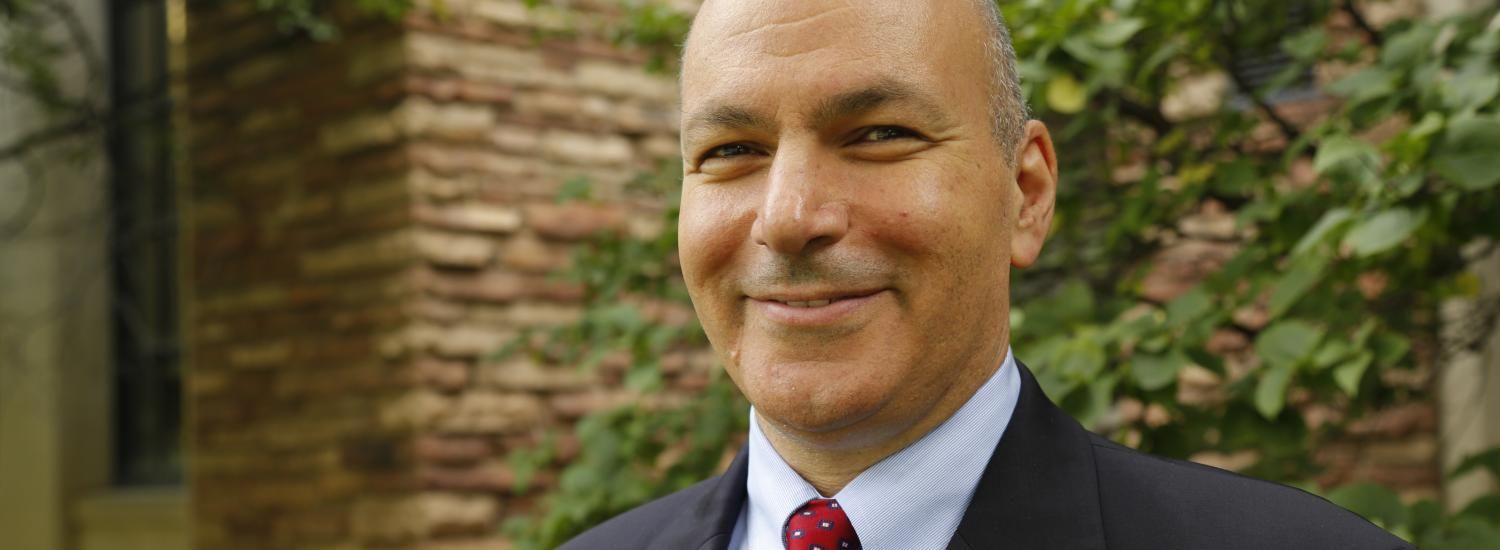Waleed Abdalati reappointed as CIRES director
Environmental change expert continues to lead the Cooperative Institute for Research in Environmental Sciences

CU Boulder has appointed Dr. Waleed Abdalati to a third, four-year term as CIRES director, following a vote by the CIRES Council of Fellows recommending that action.
“It is a pleasure to reappoint Waleed to this role, ensuring his continued leadership of CIRES as an institute whose contributions and activities are important to the university, the nation and the global scientific community,” said Massimo Ruzzene, acting vice chancellor for research and innovation and dean of the institutes at CU Boulder. “Waleed has guided CIRES to achieve an outstanding national and international reputation through a rare combination of vision, leadership and an acute sensitivity to community and societal needs. Waleed’s thought leadership is highly regarded, and he is regularly tapped for various service and advisory roles by NOAA, NASA and other leaders in the international research community. It is truly an honor for me to work with him and for CU to call him one of our own.”
Abdalati’s reappointment takes effect today, one day after the National Oceanic and Atmospheric Administration announced it will fund a new cooperative institute with CU Boulder—which will be embedded in CIRES and directed by Abdalati—with up to $565.8 million over the next 5 years.
About 850 environmental researchers and other staff work at CIRES, a partnership of CU Boulder and NOAA. Since Abdalati’s initial appointment as CIRES director in 2013, the institute has grown significantly, with annual funding rising from about $62 million in FY13 to more than $92 million in FY21. Roughly half of that funding is from a cooperative agreement with NOAA, and about 425 CIRES people now work embedded in the agency. The rest are on CU Boulder’s campus, in 10 departments.
There have been other significant changes in his tenure, Abdalati said. He sees much more acceptance now for the science of climate change, for example, and with that acceptance, more support for more research to understand its impacts. He has witnessed that expanding support play out in Congress, where members of both parties have requested his testimony on behalf of CIRES' science.
“CIRES’ footprint has grown, both on campus and in the scientific community,” he said. “CIRES does strong, impactful, robust science, and I feel privileged to be its director.”
Abdalati’s own research includes the use of space-based and airborne remote sensing techniques to understand how and why Earth's environment is changing and what those changes mean for life on Earth. He advises graduate students at CU Boulder, who study the Greenland ice sheet melt and flow variability, and how changes in Greenland impact other aspects of the Earth system, in particular global sea level.
Abdalati said he is inspired by CIRES’ motto, “Science in service to society.” Our environmental research should—and does—serve the needs of leaders making decisions that affect citizens of the world, even the future of the planet, he said. “In addition to basic understanding of our environment, our research is ultimately about asking: What does what we are studying and learning mean for society, and how can we use this information to help people?”